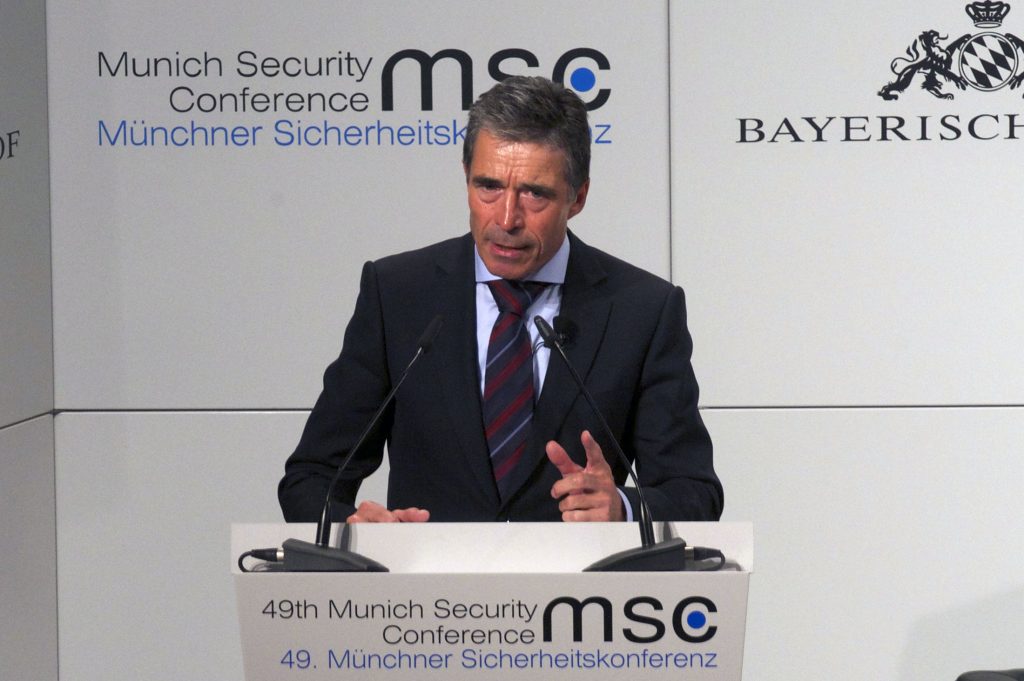
From Anders Fogh Rasmussen, NATO: [W]hat will NATO do next?
We will continue to respond to crises whenever, and wherever, the Allies judge their security interests are at stake. Because this is our core business.
When I look at our world, I see an arc of crises stretching from the Sahel to Central Asia.
Let me stress. This does not mean we will have to intervene everywhere. Nor that we are set for confrontation. But it does mean we must stand ready to deter, and defend against, any threat.
So we have to keep our operational edge, and retain the complete range of capabilities. Among these, I see increased importance for missile defence, cyber defence, and special forces.
Missile defence is a core element of our collective defence. And the deployment of Patriot missiles to Turkey is a real response to a real threat.
Many European Allies already contribute to NATO’s missile defence system. But I could see other possible contributions. For instance, European navies upgrading their ships with missile defence radars and interceptors so they can deploy alongside United States vessels.
We must also improve our cyber-resilience. I see a critical role for NATO in defining a common approach among the Allies. In training. And in providing specialist assistance to Allies who come under cyber attack.
We will also need forces with the skills and speed to act decisively. I see a vital role for NATO’s new Special Operations Forces Headquarters in planning and coordinating missions. And in improving the capability of our special operations forces to work together.
All this we CAN do. So that NATO remains the gold standard of Euro-Atlantic security in the 21st century. (photo: NATO)
Image: nato%202%204%2013%20Munich.jpg
